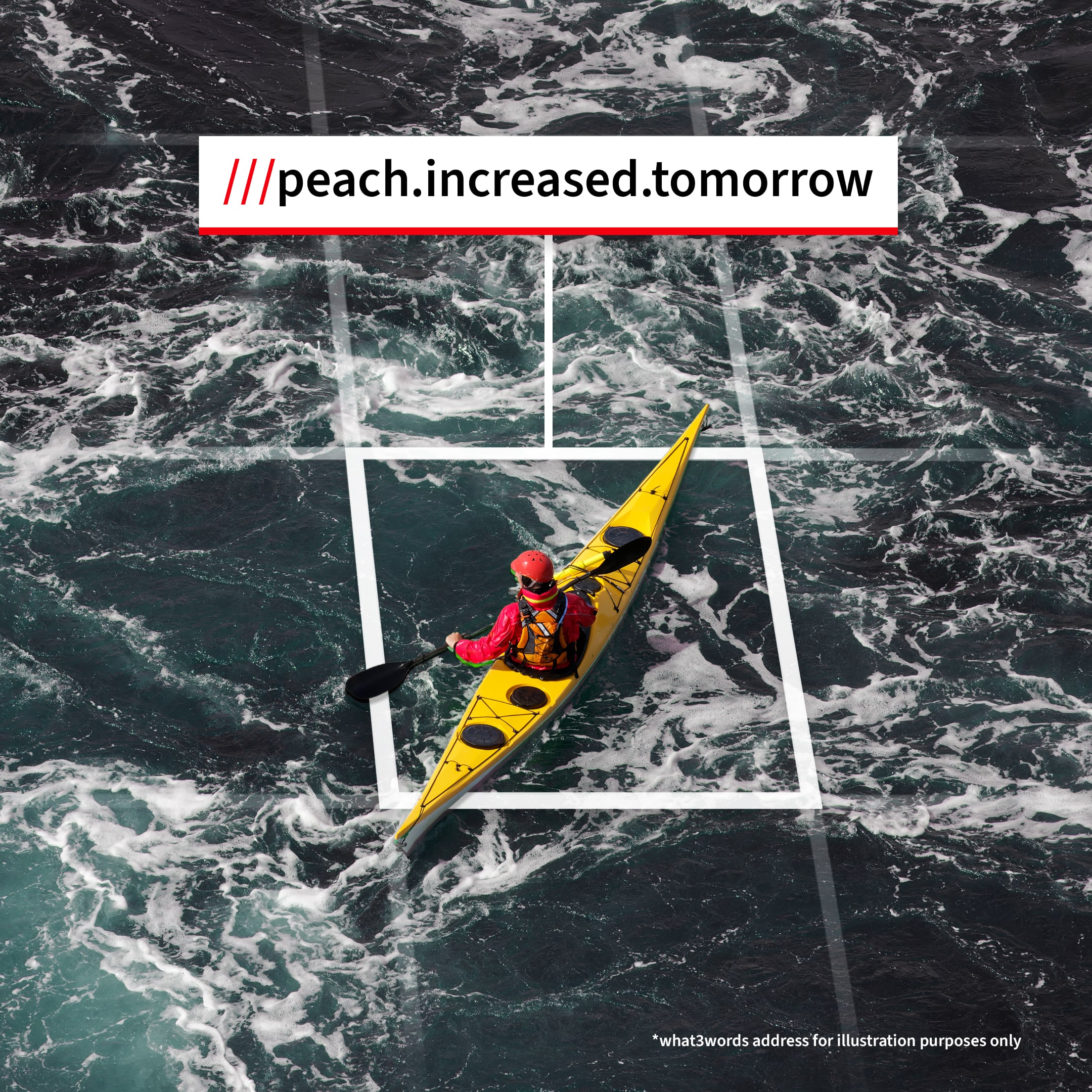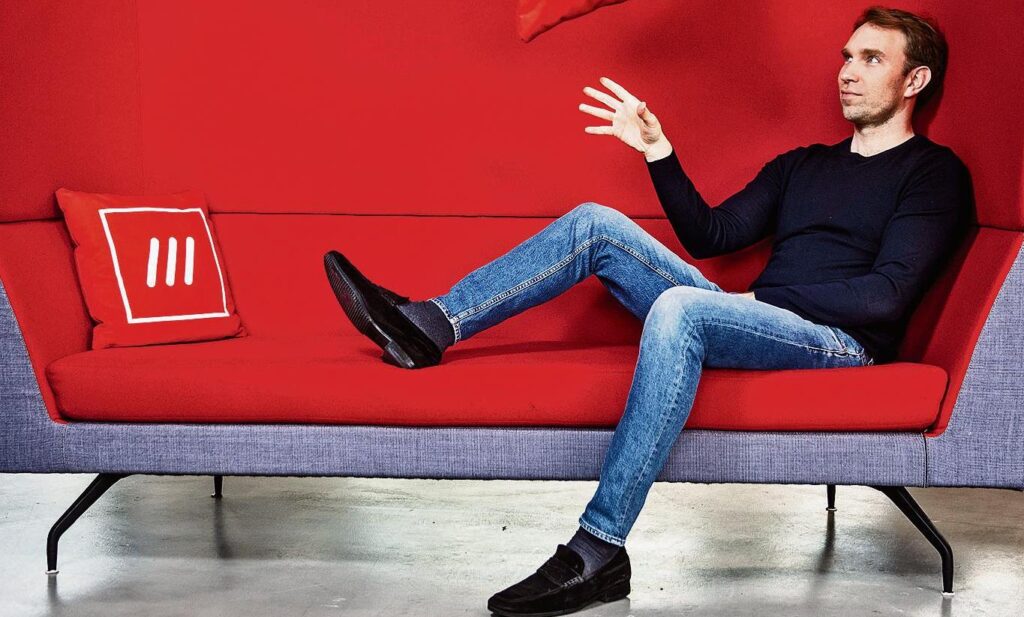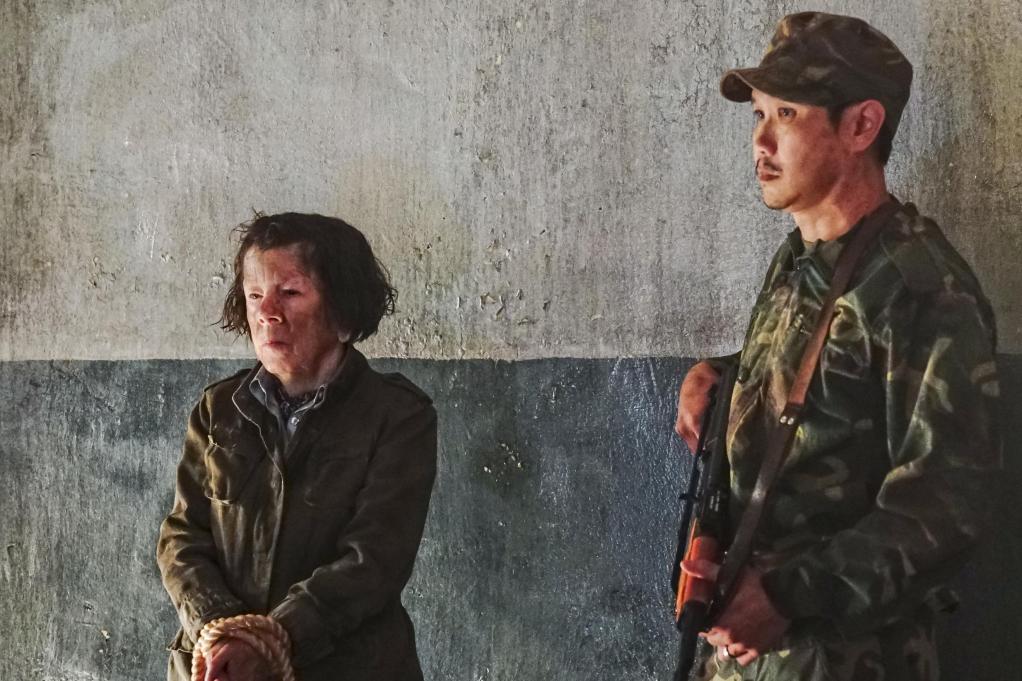

RICHARD POHLE
About 27 million people have received their first Covid-19 jab in the UK, but how many of them got lost on the way to the vaccine centre? The answer, apparently, is roughly half of them.
Like many, Chris Sheldrick knows all about the problem — “My mum went to get her vaccine in January and was sent to a big building in her local town without knowing where to go. Many people like her are getting lost or are going to the wrong entrances” — but, as a co-founder of what3words, he is uniquely placed to try to solve it.
What3words has divided the world’s surface into 57 trillion squares, each measuring 3m by 3m and each with its own unique three-word code. It can pinpoint a location much more accurately than postcodes or other address-finding tools. And the London-based company has become a key partner in the Britain’s Covid-19 response.
Its simple, memorable codes were used throughout 2020 to guide people to testing centres and to help to get ambulances to the right entrances at the new Nightingale hospitals. Now what3words is helping to direct people to the right entrances at vaccination centres to minimise waiting times, shorten queues and potentially to help to reduce any wastage of vaccines.
Sheldrick founded the company eight years ago with Jack Waley-Cohen, a fellow old Etonian. Now the technology is available in 47 languages and is in use in 190 countries, including Mongolia, where it is used by the national post service (last year, QI, the BBC television show, tested whether the what3words code would get a parcel to the British Embassy in Mongolia; it did). The app doesn’t require an internet connection to track your location and relies on GPS technology.
According to Sheldrick: “People assume that just because their smartphone has GPS, they can be tracked if they have an emergency. Some bits of tech do help emergency services to find you, but performance is variable. With what3words, you just read your three-word location and support will be dispatched to your exact location.”
In recent years, Sheldrick has been building up what3words’ credibility via licensing deals with big-name brands such as Mercedes Benz, Sony, Royal Mail and Tata Motors, but now he’s ready to bring the product into the mainstream. He has done a deal with ITV’s new AdVentures Invest initiative, which gives what3words access to advertising exposure worth £2 million in return for equity in the company. These ads will hit screens later in the year.
What3words also recently secured £12 million from Ingka Investments, the investment division of the Ikea furniture group. What has flat-pack furniture got to do with geo-coding? More than you might think: “Over the last year, we’ve made an enormous play in the ecommerce and logistics space. Bringing on a global titan like Ikea, which now does huge amounts of home delivery, is a huge signal to the world that we are very serious about this sector and that we want to revolutionise last-mile delivery.” What3words experienced 1,000 per cent growth in its usage in ecommerce partners during 2020 as home deliveries surged during the pandemic.
After a successful pilot with Royal Mail last year, it is likely what3words will make a serious play in drone navigation, too. Is Sheldrick speaking to the likes of Amazon? “I cannot comment on that, but it’s fair to say we are attracting attention from major players across the industry.”
In the past, what3words has focused on the navigation industry, licensing its technology to big automotive companies and ride-hailing providers such as Addison Lee. “But during lockdown, no one was going anywhere. It’s been difficult, our biggest challenge to date, but it forced us to innovate.” So, alongside ecommerce, what3words has created a new division dedicated to serving infrastructure players, such as utilities and motorway maintenance. “It’s a huge market and people working in infrastructure don’t typically use conventional addresses, they use latitude and longitude, painstakingly typed into devices.”
Navigation is set to boom over the coming year, driven by domestic travel and staycations in the UK. VisitBritain estimates that people will spend £62 billion on domestic tourism in 2021. “Lots of Airbnb hosts will be using our technology to guide people to their homes.”
The company grew by 98 per cent in the UK alone last year and now employs 120 staff, but there have been a few bumps on the road. Adoption was slow in the early days and what3words has its detractors. Mountain Rescue England recently raised concerns over the app, warning that it increased reliance on mobile phones and used up vital battery power, adding that hikers should still know how to use a paper map and compass. Commenting in The Great Outdoors magazine, several instructors cautioned against “too much reliance on a free app that could disappear — or radically change its business model — at any time”.
Sheldrick rejects these claims, saying that what3words is free to use for consumers and is offered free-of-charge to emergency services. “Eighty-five per cent of fire, police and ambulance services across the UK now use us. Like most technology companies, we have a robust process in place should anything happen to us as a company. There are ways for our customers to access our code so that systems don’t go down. All our customers know about this.”
Sheldrick did not set out to be an entrepreneur. He studied at the Royal Academy of Music and planned to become a professional pianist and bassoon player, but an accident shortly after graduation severed eight tendons, a nerve and an artery in his left arm, putting paid to a career as a musician. He turned to “starting a live music events business instead. I ended up loving it.”
It was while organising gigs that he had the idea for what3words: he was sick of roadies turning up at the wrong venue. “Right from the beginning I had a vision for what3words. The world is relying on an address system that was created in the 17th century. We don’t hope to replace that system, it has history and meaning, but we do want to be the modern global navigation tool for people and objects going from A to B.”
From Sheringham seafront to NCIS: Los Angeles
What3words has been used for some weird and wonderful artistic projects, such as the Sheringham seafront treasure hunt, which uses what3words clues to highlight 20 artisan-made flint eyeballs hidden along the coast (Rebecca Burn-Callander writes).
No Ordinary Gift, the gifting site, allows customers to commemorate the exact spot where an occasion occurred by using what3words to customise everything from keyrings to bumper stickers.

BILL INOSHITA/CBS VIA GETTY IMAGES
The technology has saved lives as part of a partnership with Gateway Health in South Africa. People who live in informal settlements in townships across the country are often unable to access emergency healthcare because they cannot reliably share their address. What3words now helps ambulances to reach people in distress much faster and has helped many women experiencing labour complications to successfully deliver.
A what3words phrase has even found its name on to a beer. Fear Movie Lions is a double IPA brewed by the San Diego-based Stone. The code pinpoints the place that the beer was created in Stone’s east coast facility.
In 2018, what3words made its small screen debut, appearing in NCIS: Los Angeles, the popular CBS action television series starring Chris O’Donnell and LL Cool J. The show has more than a million viewers in the United States alone. No spoilers here, but what3words plays an integral part in an storyline about the disappearance of Henrietta “Hetty” Lange, the operations manager.